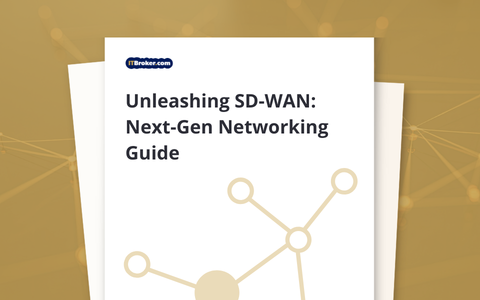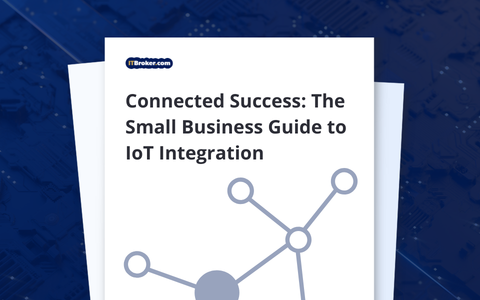What Is a Secure Web Gateway?
A Secure Web Gateway is a cloud-based or on-prem solution that filters and monitors internet traffic to enforce your organization’s security policies. It inspects every request—whether it’s a website visit, file download, or app access—to ensure it’s safe, compliant, and aligned with business policy.
Unlike legacy filtering tools, SWGs work across encrypted traffic, cloud apps, and hybrid environments. They act as real-time, intelligent traffic managers that protect your users without getting in their way.
Why Choose Secure Web Gateway?
Core Problems SWGs Solve
- Malware and Ransomware: Blocks web-borne attacks before they reach endpoints
- Data Loss: Prevents sensitive information from leaking out via SaaS or personal cloud tools
- Uncontrolled Cloud Usage: Identifies and limits shadow IT and risky app usage
- Phishing and Credential Theft: Detects spoofed sites and protects user logins
- Regulatory Risk: Helps meet compliance mandates around traffic logging and access control
Who Should Consider an SWG?
- Organizations using SaaS platforms at scale
- Teams supporting hybrid or remote work
- IT/security leaders modernizing network defenses
- Companies handling sensitive data (healthcare, finance, education, etc.)
If your users browse the internet or use unsanctioned apps, an SWG isn’t optional—it’s foundational.
Key Features of a Modern SWG
Here’s what top-tier SWG solutions deliver:
- URL Filtering: Dynamic categorization of billions of sites
- SSL Inspection: Safe decryption and scanning of encrypted traffic
- Cloud App Control: Visibility and governance across SaaS tools
- Malware Detection: Signature-based and behavioral threat detection
- Content Filtering: Block access to inappropriate or non-business content
- Data Loss Prevention (DLP): Identify and block unauthorized data transfers
- User-Based Policies: Assign rules by user, group, device, or location
- Real-Time Threat Intelligence: Updated constantly from global sources
- Comprehensive Reporting: Dashboards, alerts, and compliance-ready logs
These features make SWGs an essential piece of a modern SASE (Secure Access Service Edge) or zero trust architecture.
Implementation Insights
Deploying a SWG is about more than flipping a switch. Here’s what we advise our clients:
- Start With Assessment
Map your current web traffic, app usage, and threat surface. - Define Policies by Role
Sales may need LinkedIn and Dropbox. Finance may not. Tailored access matters. - Phase Your Rollout
Pilot with one department. Test DLP. Monitor latency. Refine before scaling. - Integrate With Identity Tools
SWGs work best when paired with your SSO or directory tools. - Monitor and Iterate
Your needs will evolve. Your policies should too. Quarterly reviews are key.
We guide teams through these stages so they can secure web access without disrupting work.
Secure Web Gateway vs. Legacy Filtering
Our take? If you’ve moved to cloud apps and hybrid work, legacy filters won’t cut it.
Common Challenges and Misconceptions
“Will this slow down my internet?”
Modern cloud SWGs use globally distributed infrastructure to minimize latency.
“Can’t I just rely on antivirus or firewalls?”
No. Firewalls block incoming threats. SWGs stop threats in the outbound direction—especially those hidden in HTTPS traffic.
“We already block websites. Isn’t that enough?”
Blocking domains is a start. But without SSL inspection and DLP, you’re missing the real risk layers.
“Isn’t this just for enterprises?”
Not anymore. Cloud-native SWGs now offer scalable, affordable plans for SMBs and mid-market teams.
How to Choose the Right SWG Partner
We help our clients avoid common traps like:
- Paying for features you don’t need
- Underestimating bandwidth needs for SSL inspection
- Choosing a solution that doesn’t play nicely with your SSO or endpoint stack
- Failing to align web policies with business workflows
At ITBroker.com, our job isn’t just to recommend the top tool—it’s to match the right one to your use case, budget, and roadmap.
Secure Web Gateway Pricing Models
Most providers offer:
- Per-user or per-device pricing
- Monthly, annual, or multi-year contracts
- Add-ons for DLP, CASB, threat isolation, and advanced analytics
- Volume discounts based on user count
We help clients negotiate better terms, validate usage forecasts, and avoid vendor lock-in.
How ITBroker.com Finds the Right Provider for You
Our consultative model means we:
- Start with your goals, not the product list
- Translate complex vendor options into clear, strategic choices
- Help you build internal alignment with security, IT, compliance, and execs
- Support every stage from evaluation to renewal
We don’t push platforms. We advise clients—objectively, and with decades of infrastructure and security expertise.
FAQs About Secure Web Gateways
Q: Do SWGs work with remote workers?
Yes. Most are cloud-delivered and designed for hybrid environments.
Q: Can SWGs stop users from uploading sensitive files?
Yes, via integrated DLP and SaaS controls.
Q: Are cloud-based SWGs secure?
Very. In many cases, more secure than on-prem, thanks to real-time threat feeds and elastic scalability.
Q: How long does it take to deploy?
With planning, a phased rollout can begin in days and scale in weeks.







.png)
.png)
.png)
_%20Redefining%20Security.png)







